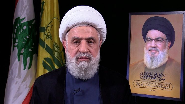
Palestinian President Mahmoud Abbas’s recent visit to Beirut has reignited discussions on Lebanese sovereignty, as Lebanon embarks on a tangible plan to disarm Palestinian factions in refugee camps. Against a backdrop of shifting regional dynamics and a fragile domestic balance, Lebanon is striving to heal a wound that has festered for over half a century.
For the first time since the signing and subsequent annulment of the Cairo Agreement, a formal and tangible process has been launched to disarm Palestinian factions in the country’s refugee camps.
On May 21, 2025, President Abbas met with Lebanese President Joseph Aoun at the Baabda Presidential Palace. In a joint statement released after the meeting, the two leaders affirmed the need to place all weapons under the authority of the Lebanese state and to strengthen coordination between Lebanese and Palestinian institutions to ensure stability in and around the camps.
This initiative could mark a decisive turning point – not only in Lebanese-Palestinian relations but, more importantly, for Lebanon’s sovereignty.
New Context, New Approach
“The Lebanese-Palestinian dialogue committee has existed for over two decades,” explains Ali Hamadeh, a journalist and political analyst. “But it remained dormant, as addressing the issue of Palestinian weapons was impossible due to geopolitical constraints.”
“This initiative was already included in President Joseph Aoun’s inaugural speech and reaffirmed in the new government’s general policy statement,” he adds.
What has changed, according to Hamadeh, is that “an official and tangible mechanism to withdraw Palestinian arms is now being pursued, made possible by the evolving geopolitical landscape in the region.” The fall of the Syrian regime, the waning of Iranian influence and renewed political momentum around the Israeli-Palestinian conflict have all reshaped internal and regional dynamics. Abbas’s recent visit to Beirut is a clear sign of this shift.
Political Maneuvers on a Minefield
But what exactly does this disarmament entail, and what obstacles lie ahead?
The disarmament of Palestinian camps is scheduled to commence shortly after Eid al-Adha in mid-June, beginning with the Beirut camps – Burj el-Barajneh, Sabra, Chatila and Mar Elias. The operation will then expand to the North, the Beqaa and finally, the South. The toughest resistance is expected in Saida’s Ain al-Helweh camp, a sprawling “city” of nearly 150,000 residents. This camp hosts a complex mosaic of armed groups, ranging from Fatah and Hamas to radical Islamist factions.
“There are at least 15 factions present across the camps, some openly hostile to both Fatah and the Palestinian Authority,” explains Hamadeh. “This will be a delicate process, driven by political negotiations, potentially protracted and likely to unfold over several months.”
The key question remains whether political will alone will suffice. The multiplicity of armed actors and tangled allegiances render implementation highly complex. Is Abbas’s clear endorsement of Lebanese sovereignty enough?
Some Fatah officials have already expressed public reservations. To succeed, will the Lebanese state need to individually negotiate with each faction? According to sources cited by newspaper al-Anbaa, Lebanon should confine itself to a single interlocutor: the Palestinian Authority, the legitimate representative of the Palestinian people.
For now, the signals are cautiously optimistic. At the first meeting of the joint commission on May 23, Prime Minister Nawaf Salam praised the Palestinian initiative and urged the relevant authorities to expedite the establishment of “a clear mechanism with a precise timetable.”
Is a Page of History Finally Being Turned?
This initiative carries profound symbolic weight. It appears poised to finally enact the official repeal of the Cairo Agreement – an annulment ratified by the Lebanese Parliament as early as 1987. Signed in 1969, the agreement granted Palestinian military autonomy within Lebanese territory. A true Pandora’s box, it transformed refugee camps into lawless zones and helped trigger Lebanon’s Civil War. The Palestinian Authority’s formal acknowledgment of the treaty’s demise marks a crucial milestone.
According to sources cited by Houna Loubnan, President Abbas reportedly told his Lebanese counterparts that Palestinian arms significantly undermine Lebanese sovereignty – and paradoxically, harm the Palestinian cause itself.
“These weapons have long ceased to serve any purpose in the Israeli-Palestinian conflict and have instead become a source of internal Palestinian division,” notes Hamadeh.
While progress is being made on the Palestinian issue, the question of Lebanese militias remains “exceptionally complex,” Hamadeh cautions, “given Hezbollah’s categorical rejection of any disarmament north of the Litani River.” Moreover, “Hezbollah represents a substantial portion of Lebanon’s population and holds all 27 Shia parliamentary seats, underscoring the magnitude of the challenge,” he adds.
Will the disarmament of Palestinian camps nevertheless close a painful chapter of violence? Lebanon, increasingly anchored in its official institutions, hopes so. Yet for this hope to become reality, promises must be translated into decisive action – and the state must finally assert full authority over its entire territory.




Comments